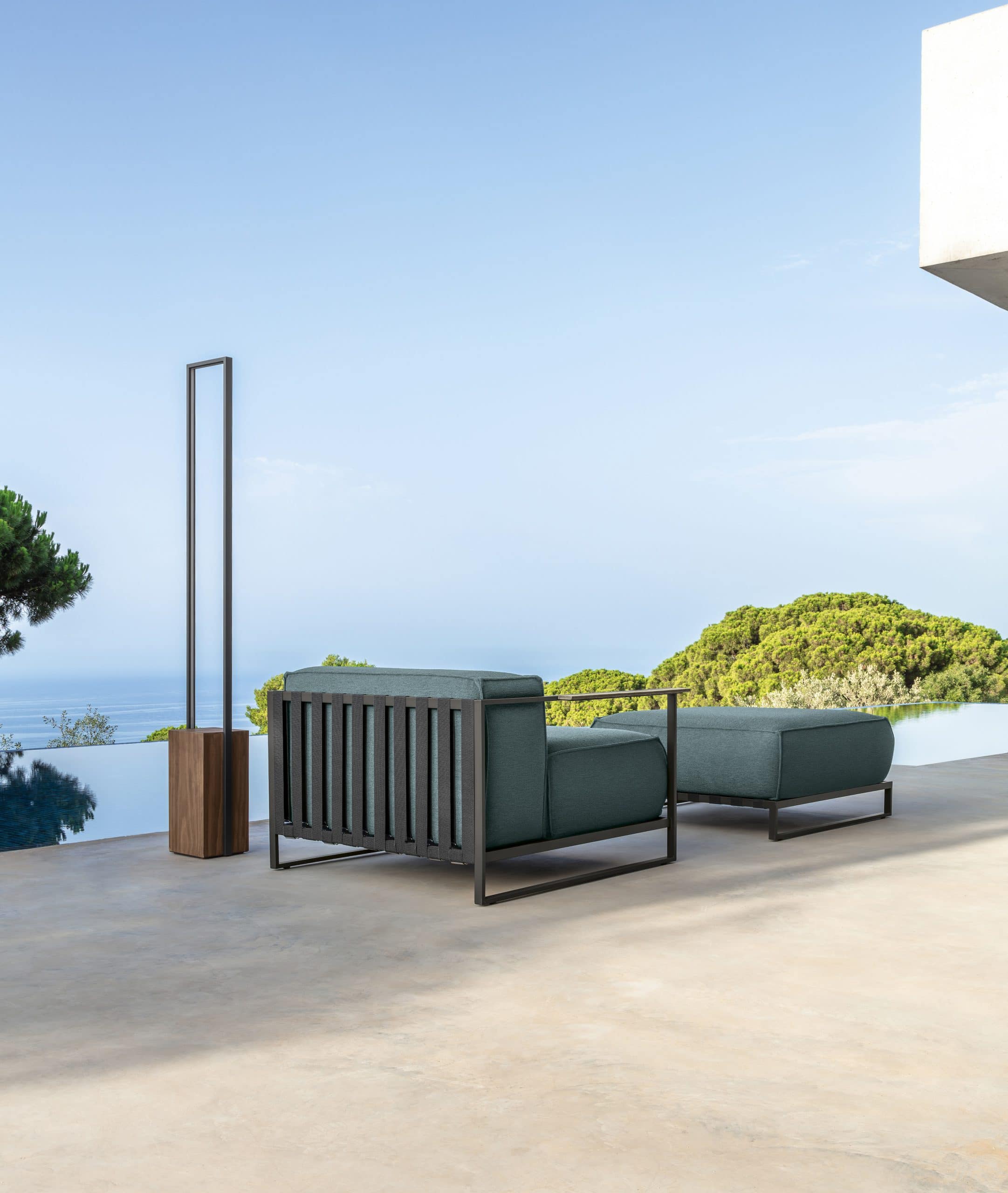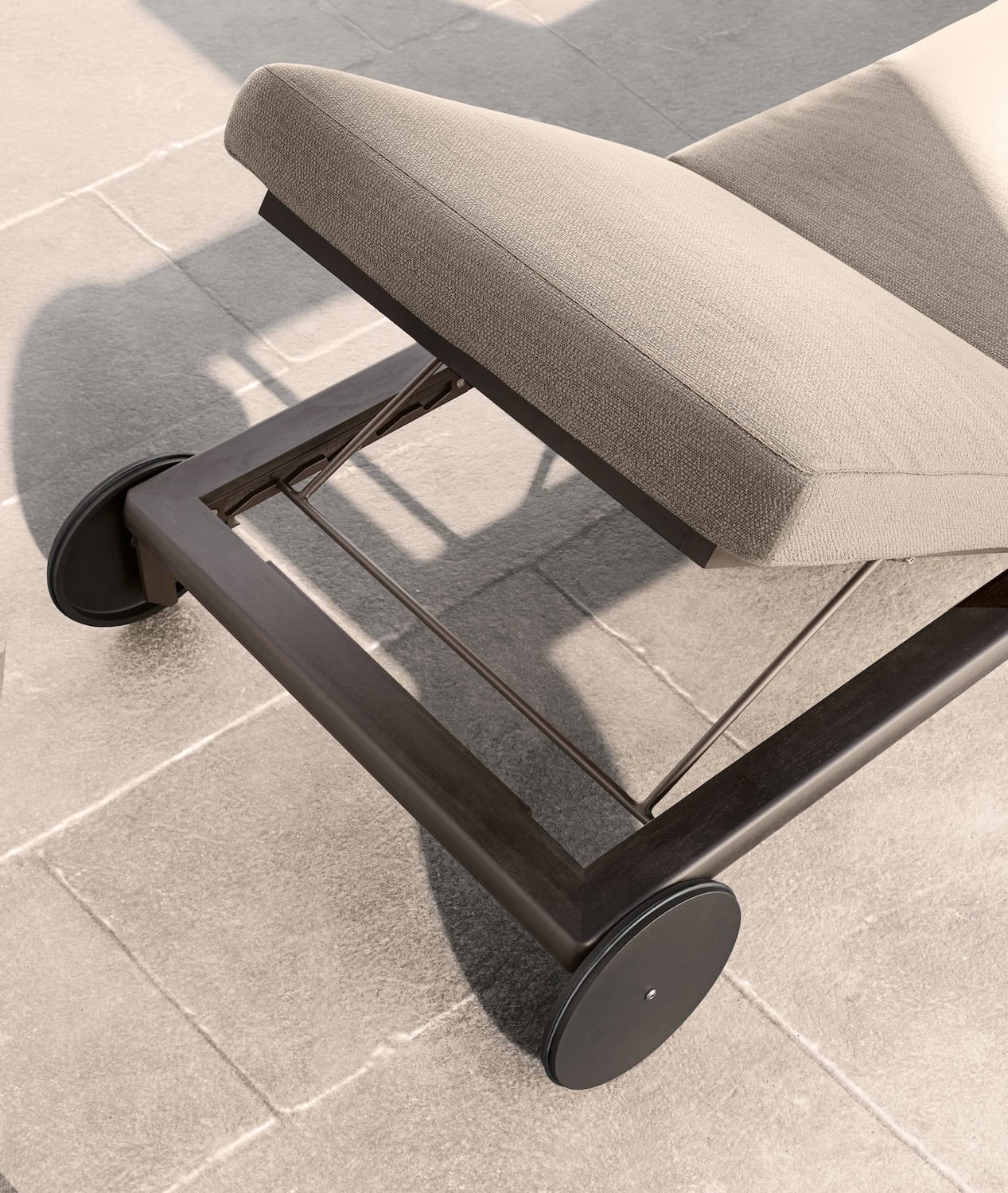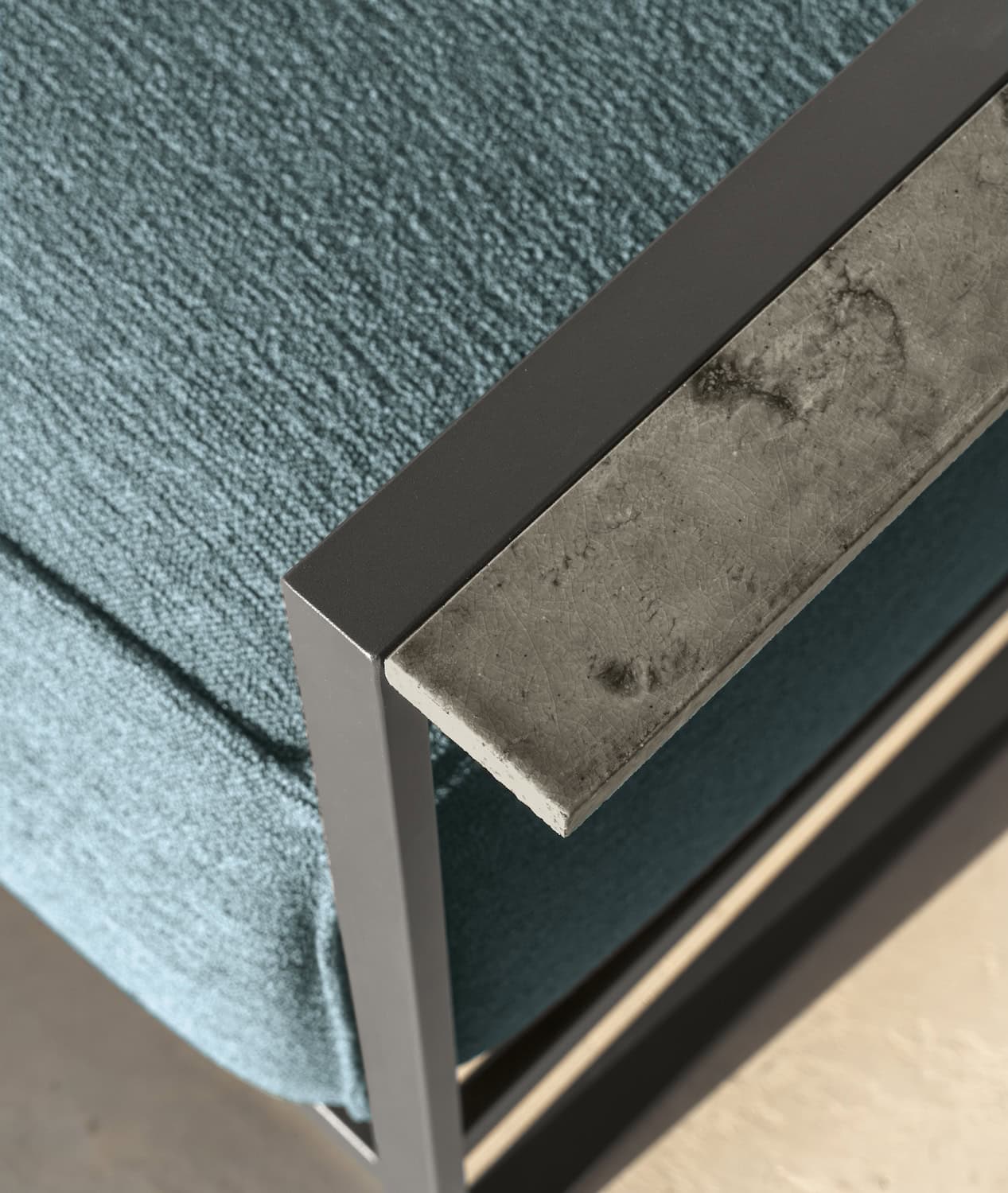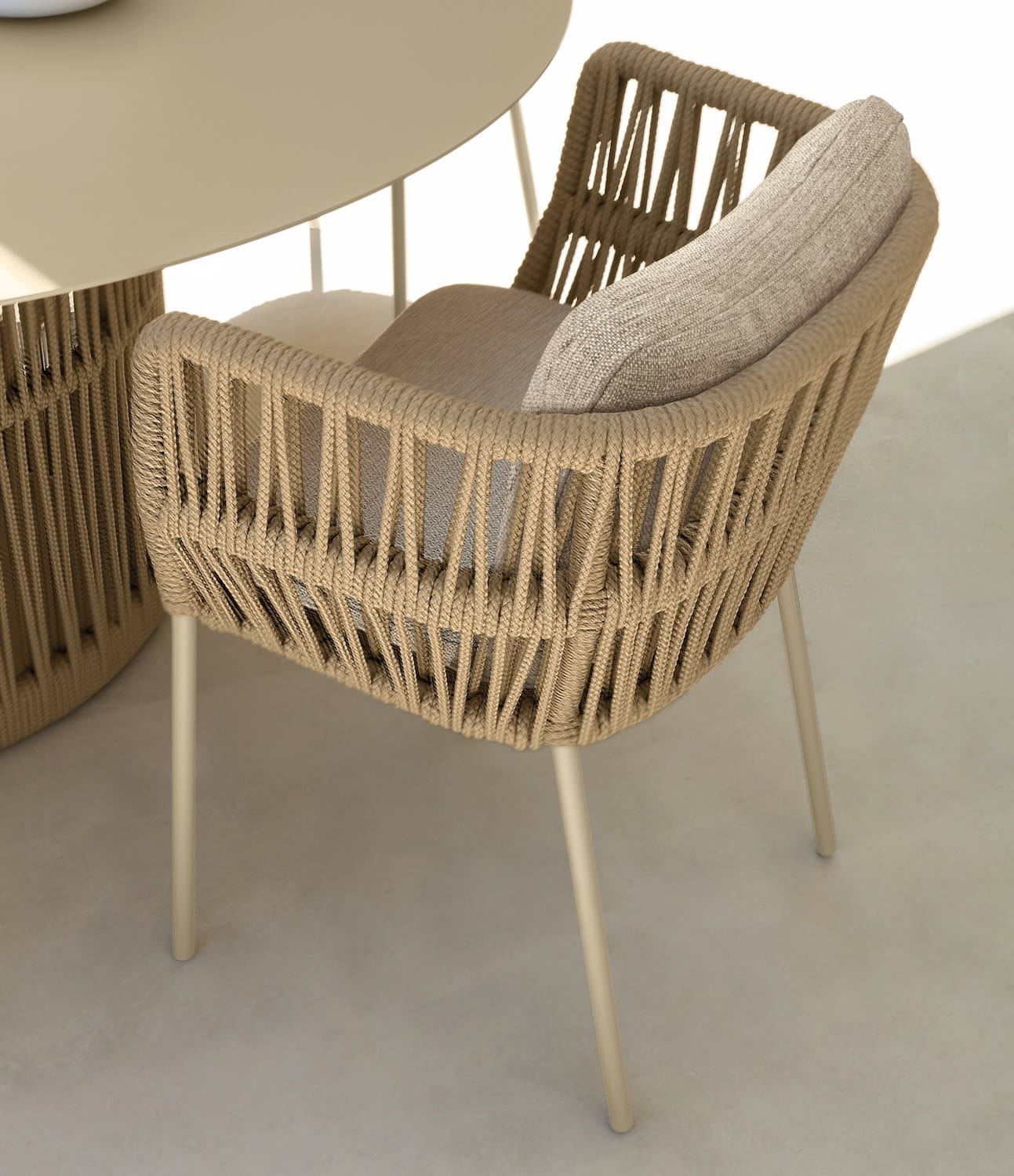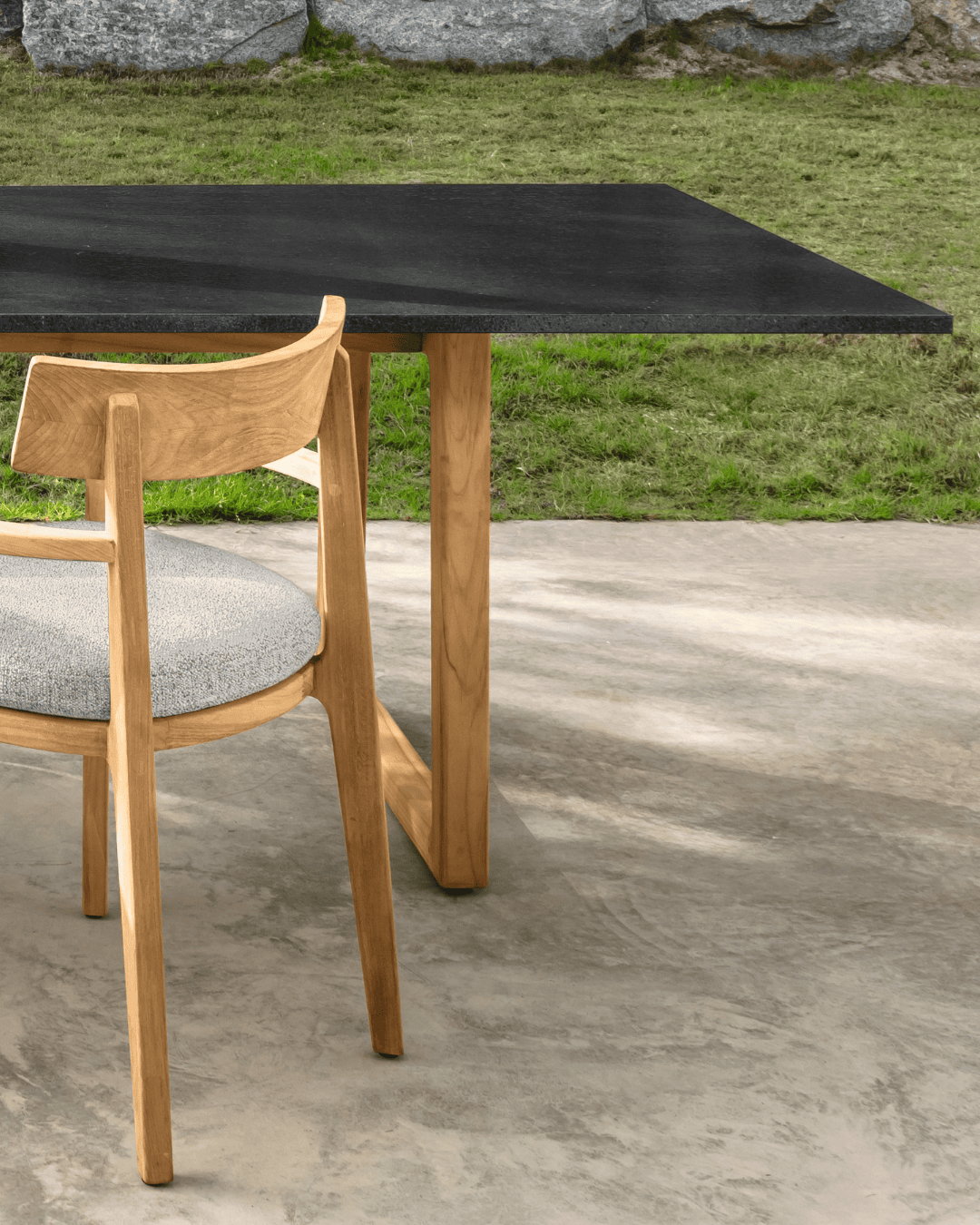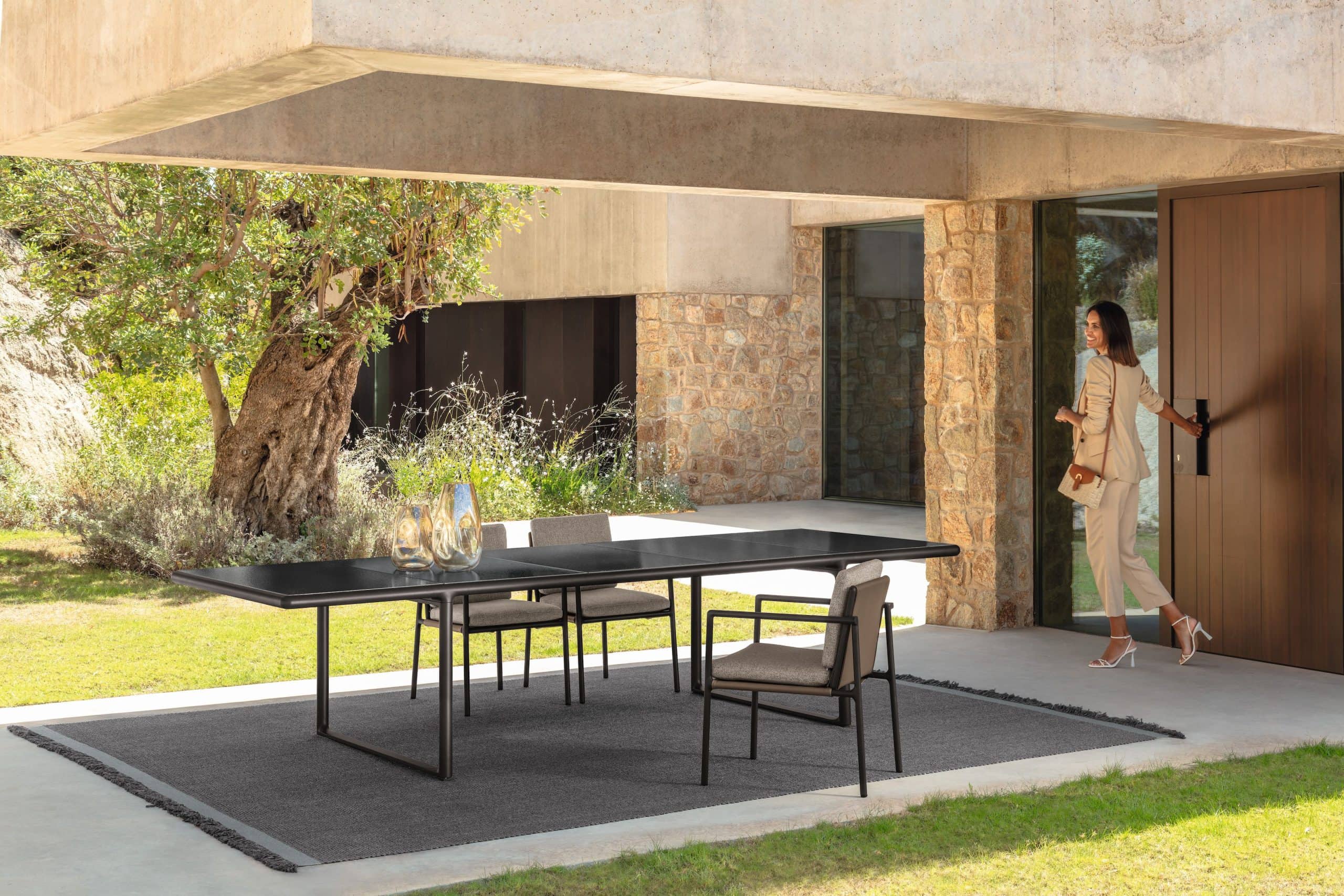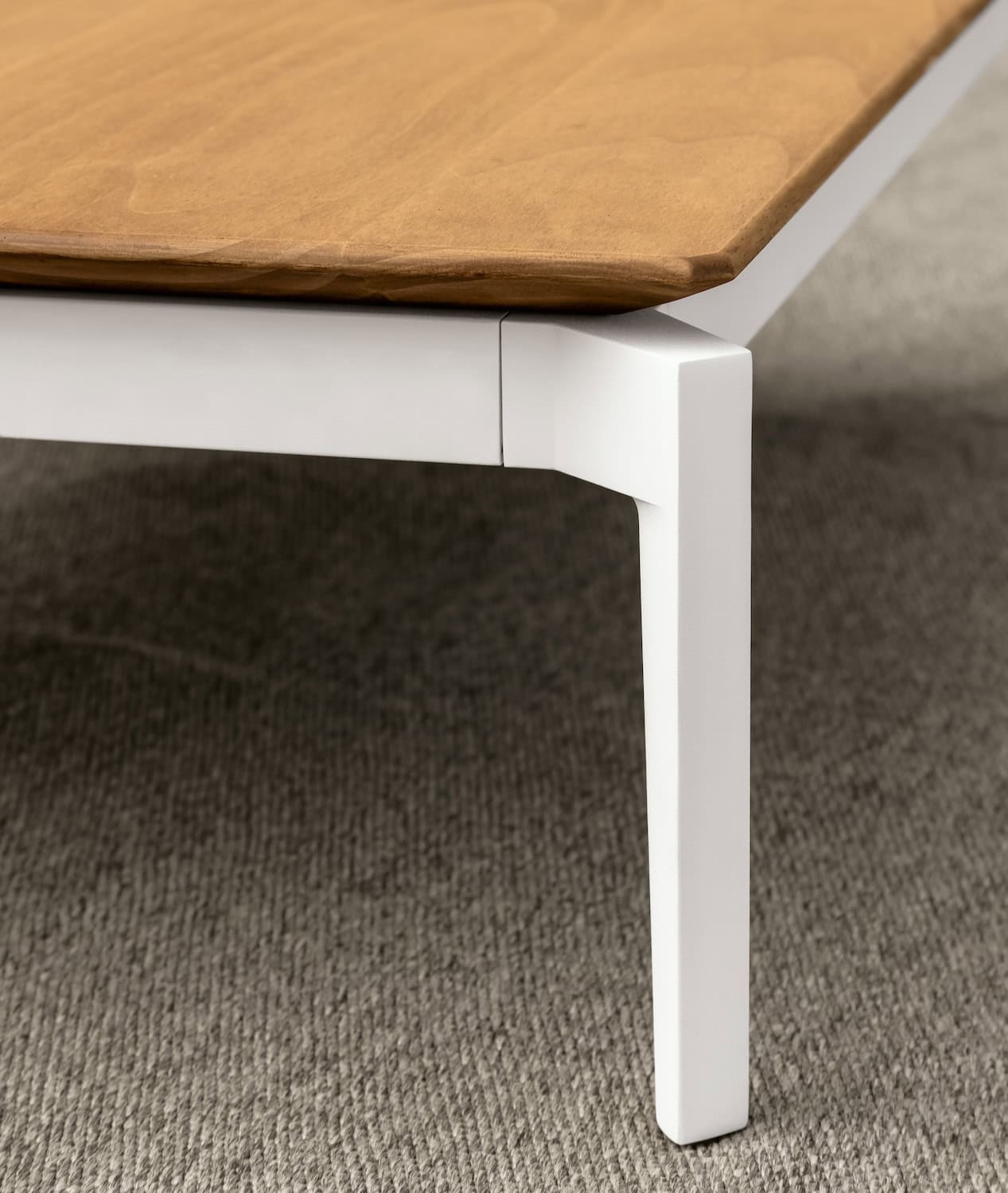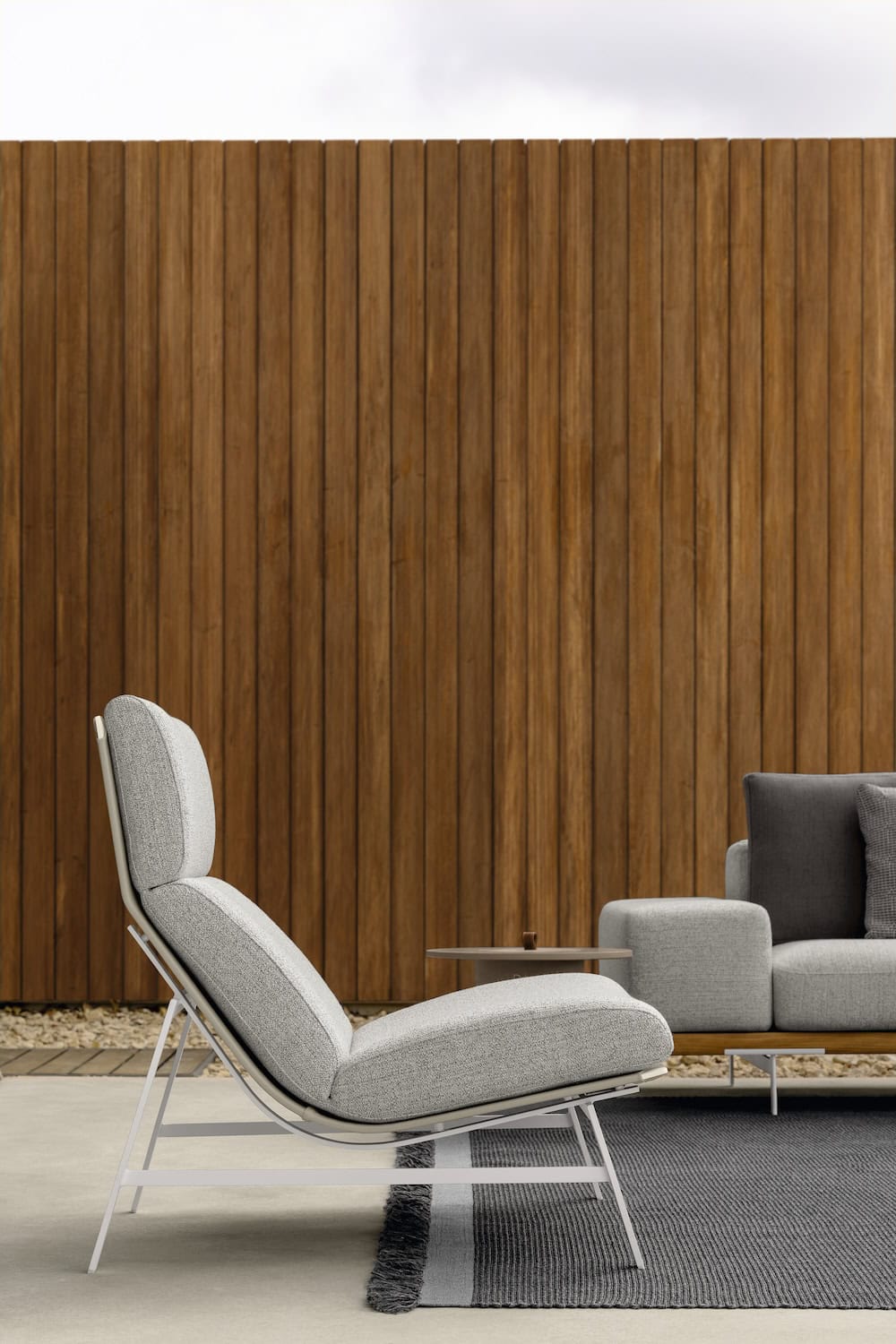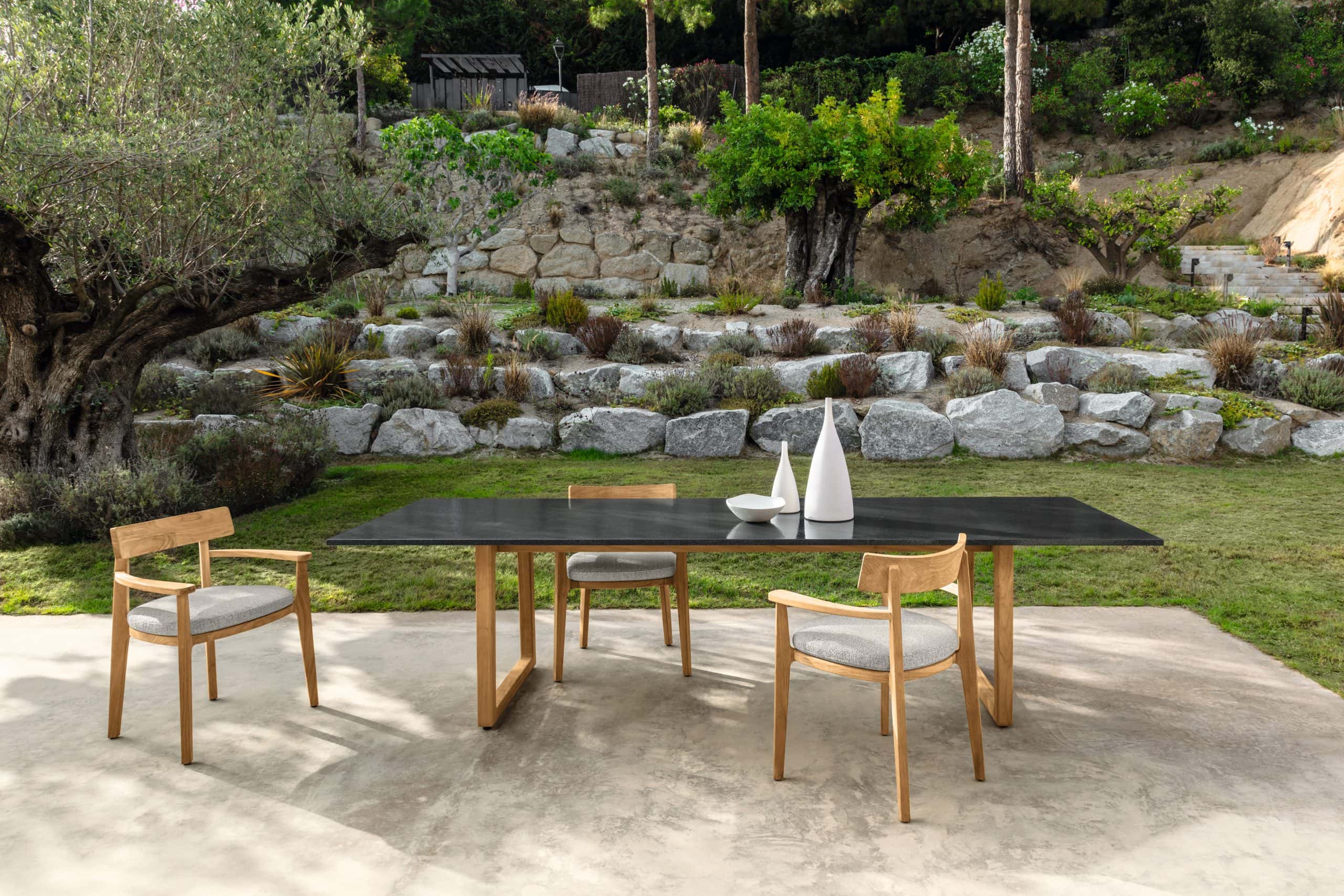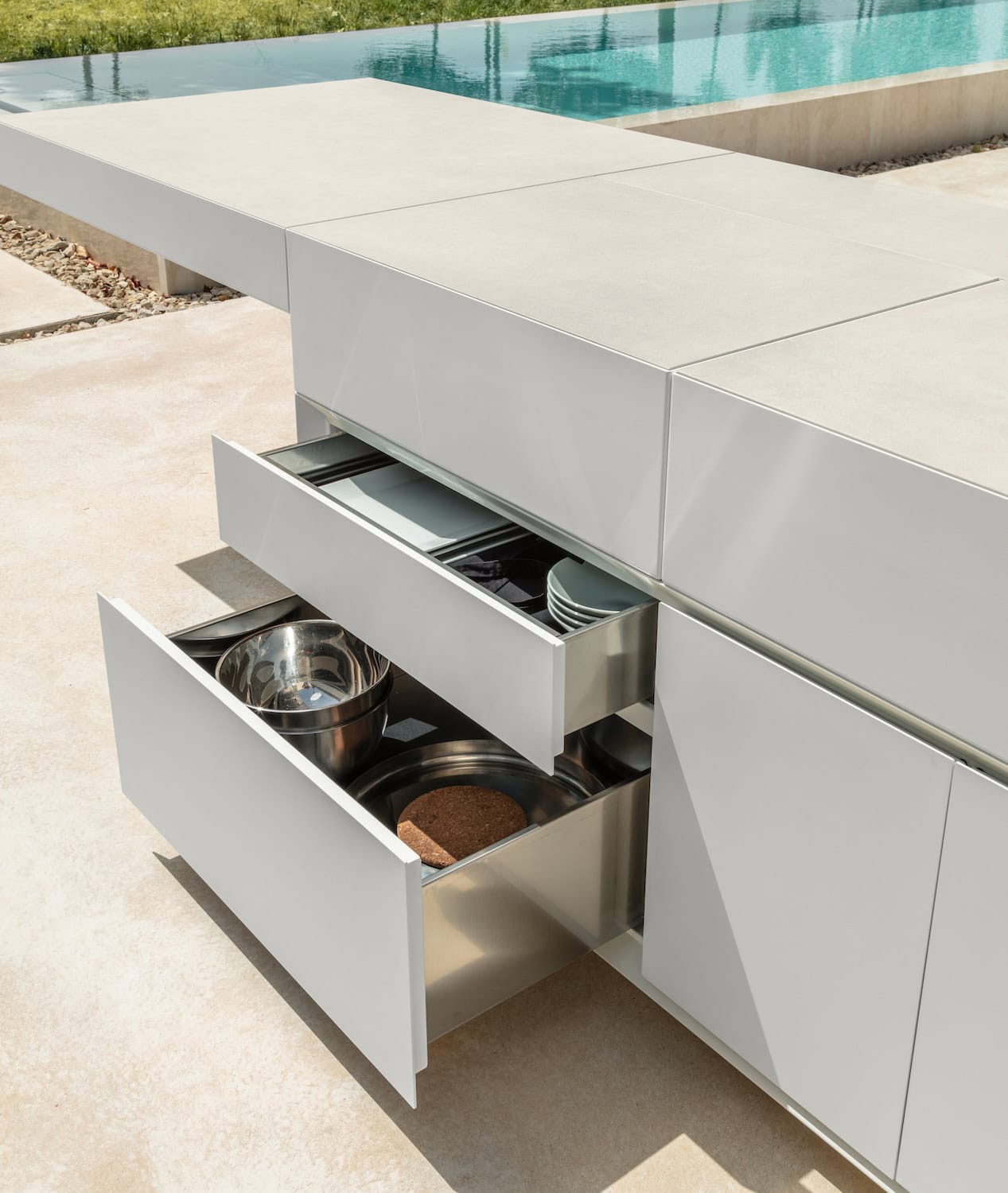Talenti is a high-quality outdoor design company that shows a responsible attitude not only in the aesthetics of its products but also towards ethics, ecology, and many other values, today more important than ever to qualify a company and its products. In April 2024 the brand celebrated its 20th birthday with a new home in the heart of the world’s design capital. The Fuorisalone was in fact the stage of the grand opening of Talenti Manzoni, the brand’s new flagship store. A project that is part of a precise entrepreneurial strategy, but that also responds to the need for an adequate space to show the great variety of luxury collections that Cameli’s company has proposed for two decades now. Talenti Manzoni represents yet another step of an unstoppable climb into the empire of the top Italian design brands where Talenti is emerging thanks to its unique freshness, combined with a brave and far-sighted entrepreneurial intelligence.
C41: What is Talenti today?
Fabrizio Cameli (Talenti CEO): It is much more than I ever expected. Twenty years after its inception, Talenti is a benchmark in the global design industry, an outdoor influencer, to use a term in vogue these days. We are present in more than 70 countries, sales are growing steadily and our products are becoming icons, but despite this, we are not satisfied. Talenti is not only the products it presents and represents, but a philosophy of outdoor life, passion for beauty, and tireless work. I talk about it as if it were a person, but that’s what it is. It’s my company, my creature that now, thanks to my family and a close-knit and efficient group, is at the top as evidenced also by the recent Compasso d’Oro 2024 win. The collaboration with Marco Acerbis, as indeed with the other talents we surround ourselves with, is a testimony to the growth that the brand has experienced, which today is different from yesterday and will certainly be different from tomorrow.
C41: Has the perception of outdoor products and lifestyle changed over the years? How so?
FC: Yes, and perhaps we have also made our small contribution. Twenty years ago, outdoors were garden tables and little more; now it is an ever-expanding universe. From the beginning, and the facts proved me right, my idea was to bring the elegance of interior design to outdoor living by overcoming the stereotypes and limitations that society wanted to impose on us. We can say that we rebelled against the status quo and rewrote the perception of the outdoors by redesigning its connotations and focusing on creativity, versatility, and elegance. To do this, we relied on prestigious designers such as Ludovica Serafini and Roberto Palomba, the aforementioned Marco Acerbis, Karim Rashid, Ramon Esteve, Christophe Pillet, Jean Philippe Nuel, etc., and we pursued a vision that then, also aided by the pandemic, became even more relevant. Confinement pushed each of us to look outside to escape the pressure of the walls of the home to bet on terraces and gardens as places to breathe new freedom.
C41: How did Talenti adapt to the change?
FC: Talenti was born precisely to inspire and live this change for which we did not have to adapt, we were already ready. As the pandemic opened the world’s eyes and overturned priorities, the same ones that have always been a reason for us to be, it is safe to say that Talenti, in what might have seemed like a period of bewilderment, instead gained the recognition it had been waiting for, winning the market. While the COVID-19 pandemic was pushing companies to cut back, we invested in a new headquarter, a facility that not only recovered and reclaimed an abandoned area of Amelia (in the Italian province of Terni) but also accelerated that process of centralising production. Now we produce much more than before to avoid depending too much on raw material imports. It was a gamble that allowed us to grow spectacularly while others were falling behind.
C41: What is your idea of outdoor living?
FC: For me, outdoor living should be a fusion of beauty and practicality, but we need to differentiate between residential and “contract”. In the home, the garden of a villa, or a private terrace, there has to be a symbiosis between the product and the person who has to experience it daily. Hence our focus is on tailor-made colours and materials, the continuity between indoors and outdoors, and last but not least, durability. If, on the other hand, we are talking about hotels or restaurants, the products must, on the one hand, seduce the property but also fascinate a broad spectrum of visitors who must feel at ease. If your home can be an oasis of relaxation, a hotel must convert into an island to be discovered. In common they must have efficiency from a technological point of view: producing outdoor furniture requires attention to the production process, study, and research, to satisfy the eye, but also and above all to cope with practical needs that strongly influence the choices of users. The rest is done by the alchemy between the company and its designer; the refinement of forms, the use of increasingly modern and versatile materials that bring to life a piece of furniture, or a family of furniture, synchronised with its user. The outdoors is life, it is space for escape, reflection, or simply regeneration to cope with a complicated age.
C41: And what materials are the focus of your research? How do they influence the form?
FC: Our search for new materials that are sustainable but can meet the needs of designers in terms of strength, aesthetics, and flexibility, has been a challenge we have taken up for some time and turned it into one of the drivers of our growth. We have always been of the idea that companies have a significant responsibility towards the environment, this concept is intrinsic to our vision and our goal is precisely to create quality objects, that last over time and are built with sustainable materials. We choose to use recycled or environmentally friendly materials, and this is not a fad for us. There are many steps we have taken, starting precisely with the materials we use: such as Vitter, Accoya wood, Teak, and aluminum. To give an example I mention Nalu collection, where a special focus in the design was given to the sustainable component. The structure is made of 100% aluminum making it its own not only a matter of weather resistance but also of respect for the environment. This is reinforced by the fact that the collection is entirely and totally disassemblable and recyclable. On the other hand, the Venice collection, for example, the highlight among the 2024 collections, in which Accoya® wood is the absolute star, also perfectly embodies our ideal of respect for nature and our surroundings. The latter is a solid, eco-friendly wood sourced from fast-growing, totally non-toxic sustainable forests that provides dimensional stability and durability superior to even the best tropical hardwood. Sustainability spurs us to do even better, not a limitation but an additional tool for creative inspiration.
